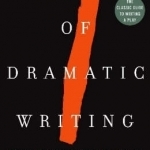The Art of Dramatic Writing: Its Basis in the Creative Interpretation of Human Motives
BookThis item doesn’t have any media yet
2003 | Essays
Lajos Egri examines a play from the inside out, starting with the heart of any drama: its characters. For it is people - their private natures and their inter-relationships - that move a story and give it life. All good dramatic writing depends upon an understanding of human motives. Why do people act as they do? What forces transform a coward into a hero, a hero into a coward? What is it that Romeo does early in Shakespeare's play that makes his later suicide seem inevitable? Why must Nora leave her husband at the end of A Doll's House? These are a few of the fascinating problems which Egri analyzes. He shows how it is essential for the author to have a basic premise - a thesis, demonstrated in terms of human behaviour - and to develop his dramatic conflict on the basis of that behaviour. Premise, character, conflict: this is Egri's ABC. His book is a direct, jargon-free approach to the problem of achieving truth in a literary creation.
Related Items:
| Published by | Simon & Schuster |
| Edition | Unknown |
| ISBN | 9780671213329 |
| Language | N/A |
Images And Data Courtesy Of: Simon & Schuster.
This content (including text, images, videos and other media) is published and used in accordance
with Fair Use.
